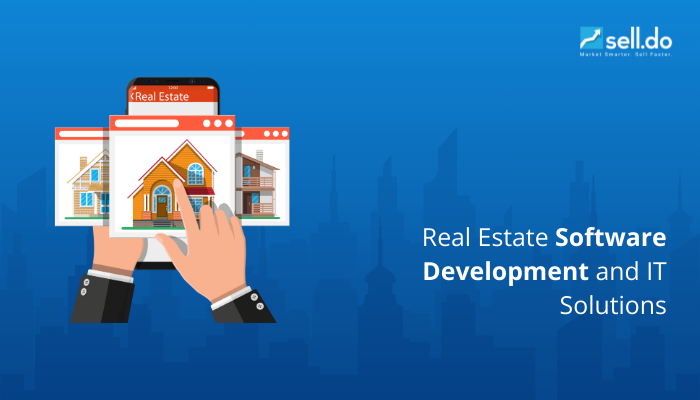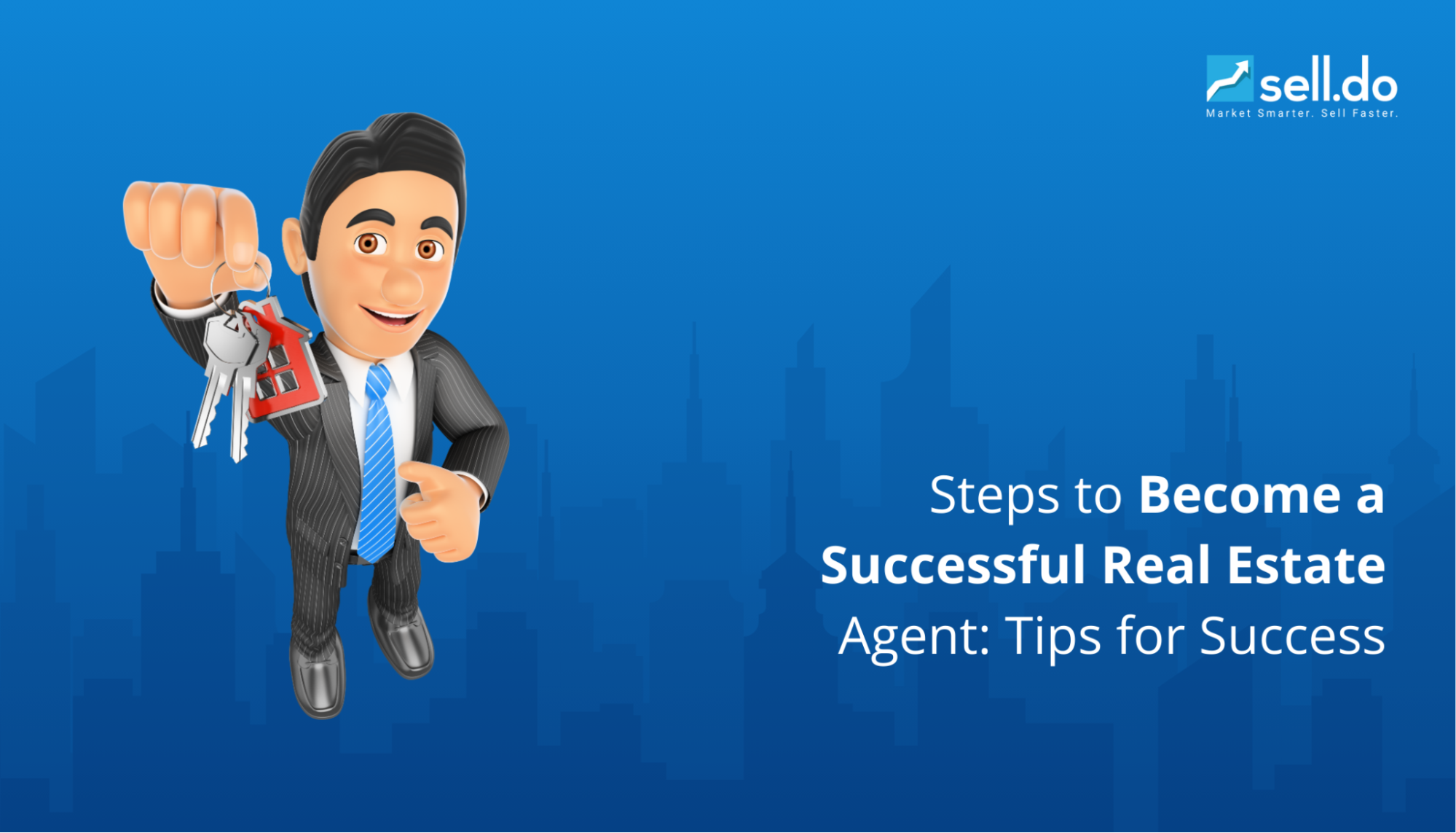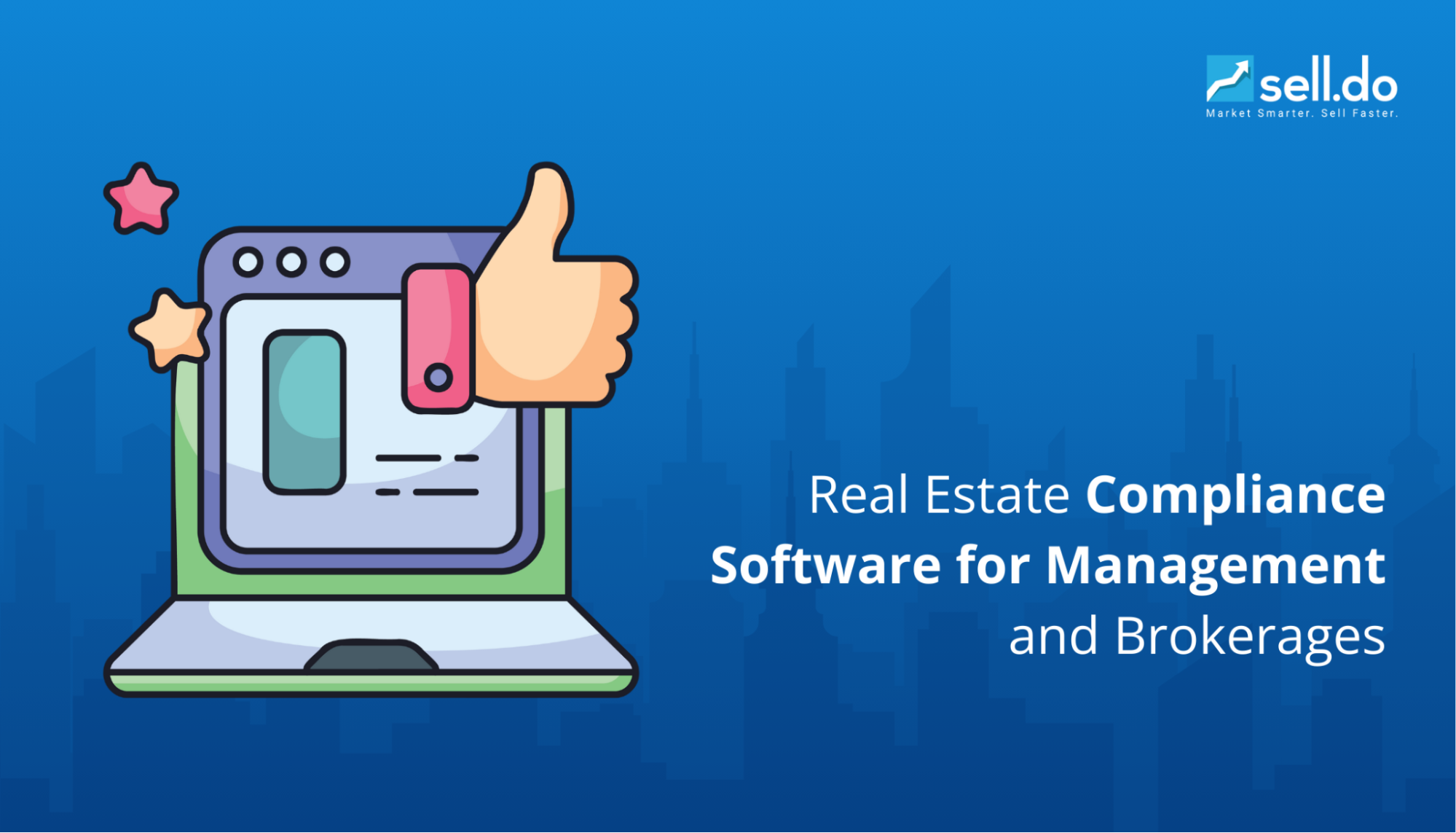Struggling to convert real estate leads into actual buyers? You're not alone. Many real estate professionals attract potential clients but lose them somewhere along the journey. The problem isn't the lack of leads—it’s an inefficient sales funnel that fails to nurture and guide prospects toward a decision.
A real estate sales funnel is the structured path a potential buyer follows, from initial interest to closing a deal. However, leads can slip through the cracks without the right strategy, resulting in missed opportunities and wasted marketing efforts.
The solution? Optimizing your real estate sales funnel to engage, nurture, and convert leads effectively. In this guide, we’ll share expert-backed tips to refine your sales process, improve conversions, and maximize your return on investment.
So, let’s get started!
What is a Real Estate Sales Funnel?
A real estate sales funnel is the step-by-step process that turns potential buyers or sellers into actual clients. It starts when someone shows interest in a property or service and moves through different stages—awareness, interest, consideration, and decision—until they finalize a deal. Think of it like a guided journey where you attract leads, nurture them with valuable information, and help them make a confident buying or selling decision. A well-structured sales funnel ensures no lead gets lost and increases the chances of closing more deals efficiently.
You can also check our blog, Steps, and Techniques in the Real Estate Sales Process, for expert tips to improve your sales process.
Now, let’s understand the different stages in a sales funnel for real estate.
Stages of a Real Estate Sales Funnel
Let's explore each stage and points to keep in mind to optimize them:
Awareness
This is the first stage where potential clients become aware of your real estate services. They might come across your website, social media posts, or blog articles while searching for property-related information. The key here is visibility—leveraging SEO, content marketing, and social media engagement helps attract leads who may need your services.
Interest
Once prospects know about your services, they start showing interest by exploring your content, signing up for newsletters, or engaging with your social media posts. At this stage, the focus is on building trust and keeping them engaged with valuable content, such as virtual tours, informative blogs, and email updates. The goal is to keep your brand top-of-mind as they consider their real estate options.
Consideration
Now, potential clients are actively evaluating their choices. They compare different real estate options, look at testimonials, and attend webinars or consultations to gather more information. Providing detailed property insights, answering their queries, and showcasing success stories can help nudge them closer to making a decision in your favor.
Intent
At this point, the prospect is seriously considering buying or selling a property and is ready to take action. They might schedule property visits, request price breakdowns, or seek expert advice. Offering personalized consultations and guiding them through the next steps can help convert their intent into a commitment.
Evaluation
Before making a final decision, clients often weigh their options carefully. They compare different properties, analyze market trends, and seek reassurance about their investment. Providing transparent information, clear comparisons, and expert insights can help them confidently make an informed choice.
Decision
The final stage is where the deal is closed. This involves finalizing paperwork, negotiating terms, and ensuring a smooth transaction. Clear communication and an efficient closing process can leave a lasting positive impression, increasing the chances of referrals and repeat business.
Each stage of the real estate sales funnel plays a crucial role in guiding prospects toward a successful transaction.
Also, check our blog, Effective Techniques for Real Estate Follow-Up Systems.
Next, let’s explore how to build a sales funnel that maximizes lead conversions and drives sales growth.
Building Your Real Estate Sales Funnel
Creating a structured sales funnel is essential for guiding potential clients from interest to closing. Each stage requires specific strategies to capture, nurture, and convert leads effectively.
Identifying Your Target Audience
Understanding your ideal client is the first step in building a successful sales funnel. Different buyers have unique needs, and tailoring your approach ensures better engagement. Below are some pointers to help you get started:
- Define client profiles: First-time buyers, luxury investors, or commercial property seekers.
- Identify key pain points: Financing options, legal processes, or location preferences.
- Segment audiences: Use CRM tools to personalize communication and marketing efforts.
Creating Valuable Content
High-quality content helps attract and educate potential buyers, positioning you as an expert in the real estate market. Here are the steps you can take to provide valuable content:
- Develop educational resources: Buyer's guides, market reports, and investment insights.
- Leverage video content: Virtual tours, property walkthroughs, and neighborhood highlights.
- Optimize for SEO: Use relevant keywords to improve search visibility.
Lead Capture Strategies
Capturing contact details is crucial to building a pipeline of potential buyers and sellers. Here are some strategies you can implement:
- Use landing pages: Offer free resources in exchange for contact details.
- Implement clear CTAs: Encourage sign-ups for newsletters, consultations, or property alerts.
- Simplify forms: Minimize required fields to increase conversions.
Lead Nurturing Techniques
Engaging leads through consistent follow-ups builds trust and keeps you on top of mind. Below are some steps you can take:
- Personalize email campaigns: Send tailored property suggestions and market updates.
- Follow up with calls: Address concerns and provide expert advice.
- Use retargeting ads: Re-engage prospects who previously interacted with your website.
Conversion Tactics
Being strategic in presenting opportunities, addressing concerns, and creating urgency can make all the difference in turning an interested lead into a committed buyer.
- Offer limited-time deals: Discounts on closing costs or exclusive property previews.
- Provide free consultations: Help clients make informed decisions.
- Host VIP property tours: Give serious buyers an exclusive look at high-value listings.
By implementing these strategies, real estate professionals can build a high-performing sales funnel that attracts, nurtures, and converts leads effectively.
Recommended: Sources for Lead Generation for Real Estate Agents: Methods and Ideas.
After setting up your real estate sales funnel, the next crucial step is ensuring it performs efficiently. This requires tracking key metrics and refining strategies for continuous improvement.
Measuring and Optimizing Your Funnel
A real estate sales funnel needs continuous monitoring to ensure it performs efficiently. Tracking key performance indicators (KPIs) helps identify strengths, spot weaknesses, and make informed adjustments to improve conversions.
Lead Conversion Rate
The lead conversion rate measures how many prospects move through each stage of your sales funnel and ultimately become clients.
How to Calculate:
Lead Conversion Rate (%) = (Number of Leads Converted ÷ Total Number of Leads) × 100
If your conversion rate is low, check if your leads are being properly qualified before they enter the funnel. Are they genuinely interested in real estate services, or are they just browsing? Improving your lead qualification process can ensure that only high-intent prospects enter your funnel, leading to better conversion rates.
Client Acquisition Cost (CAC)
Client Acquisition Cost measures how much you are spending to acquire a single client. This metric is crucial in determining whether your sales funnel is cost-effective.
How to Calculate:
CAC = Total Sales & Marketing Expenses ÷ Number of New Clients Acquired
If CAC is too high, consider improving your organic lead generation strategies (such as SEO and content marketing) rather than relying heavily on paid ads. Streamlining your lead nurturing process with automation can also reduce costs by minimizing the amount of manual effort required to move a lead through the funnel.
Engagement Metrics
Engagement metrics measure how potential clients interact with your marketing efforts. These indicators help you understand whether your content and outreach strategies resonate with your audience.
Key Engagement Metrics to Track:
- Email Open Rates: Shows how many recipients open your emails, indicating the effectiveness of your subject lines.
- Click-Through Rates (CTR): Measures how many leads click on links in emails or ads, showing the level of interest in your content.
- Website Traffic: Tracks the number of visitors to your real estate website, helping measure brand visibility.
- Social Media Engagement: Monitors likes, shares, comments, and interactions on your social media platforms.
If engagement is declining, it may be time to refresh your content strategy. Ensure that your messaging speaks directly to the concerns of homebuyers, sellers, and investors.
Check our blog, All About Setting Up An Online Real Estate Sales Process, for a step-by-step guide to optimize your sales process.
Next, let’s take a look at some strategies you can implement to achieve better results.
Strategies to Optimize Your Real Estate Sales Funnel
A well-structured real estate sales funnel ensures potential buyers move seamlessly from inquiry to purchase. However, leads can slip through the cracks without the right strategies, resulting in lost opportunities. Here are key strategies to improve your sales funnel and maximize conversions:
- Implement AI-Powered Lead Scoring: Not all leads have the same level of interest or buying potential. AI-driven lead scoring helps categorize prospects based on their intent, engagement, and financial capability, allowing sales teams to focus on high-value leads first.
- Centralize Lead Capture from Multiple Sources: Real estate businesses generate leads from various channels, such as property portals, social media, paid ads, and walk-ins. A centralized CRM consolidates these inquiries, preventing lead duplication and ensuring no prospect is overlooked.
- Personalize Buyer Engagement: Every buyer has unique preferences and concerns. Using behavioral data, real estate professionals can send personalized property recommendations, financing options, and location insights, making interactions more relevant and engaging.
- Automate Follow-Ups for Consistent Engagement: Leads often go cold due to delayed responses or inconsistent communication. Automating follow-ups through scheduled emails, SMS, and WhatsApp messages ensures timely engagement, reducing the chances of losing potential buyers.
- Optimize Site Visit Scheduling: Site visits are a critical step in closing real estate deals. Implementing an automated scheduling system allows buyers to book appointments conveniently while ensuring sales teams can manage visits efficiently without overbooking or missing prospects.
- Leverage Data Analytics for Funnel Optimization: Tracking metrics like response times, lead conversion rates, and drop-off points provides actionable insights into bottlenecks in the sales funnel. Data-driven decisions help refine marketing strategies, improve team performance, and enhance overall sales efficiency.
- Nurture Long-Term Leads with Drip Marketing: Not all buyers are ready to make an immediate purchase. Drip marketing campaigns—featuring property updates, market trends, and financing advice—keep prospects engaged over time, increasing the likelihood of conversion when they are ready.
- Integrate Virtual Tours and Digital Sales Tools: Many buyers prefer exploring properties online before making a visit. Virtual tours, 360° walkthroughs, and interactive property brochures provide an immersive experience, helping potential buyers make informed decisions faster.
- Streamline Documentation and Payment Processing: Automating document verification, e-signatures, and online payment tracking speeds up transactions, improving the overall buyer experience and reducing drop-offs.
- Strengthen Post-Sales Engagement: A satisfied buyer can lead to referrals and repeat business. Post-sales follow-ups, timely assistance with documentation, and regular communication about property possession or investment updates enhance long-term client relationships.
Additionally, leveraging a dedicated CRM can make a huge difference in maximizing the effectiveness of your real estate sales funnel.
The Role of CRM in Optimizing Your Real Estate Sales Funnel
A well-structured real estate sales funnel is essential for converting leads into clients. However, managing a high volume of leads from multiple sources can be challenging. A real estate CRM (Customer Relationship Management) system helps streamline this process by organizing, tracking, and nurturing leads efficiently.
Here’s how a CRM can help:
- Centralized Lead Management: Consolidates leads from property portals, social media, and offline sources into a single platform for better organization and tracking.
- Intelligent Lead Qualification: Uses AI-driven scoring to prioritize serious buyers, enabling sales teams to focus on high-conversion prospects.
- Automated Follow-Ups & Engagement: Sends timely reminders, property updates, and personalized communication via email, SMS, and WhatsApp to nurture leads effectively.
- Real-Time Funnel Insights: Tracks lead movement, identifies drop-off points, and provides data-backed recommendations to refine sales strategies.
- Seamless Appointment & Site Visit Scheduling: Automates booking processes, reducing no-shows and improving client experience.
- Performance Analytics & Reporting: Delivers insights on response rates, follow-up efficiency, and deal closures to optimize sales efforts.
By now, you understand how a CRM can enhance your real estate sales funnel. However, generic CRMs often fall short, lacking industry-specific features and creating more challenges than solutions. That’s why Sell.Do, built exclusively for real estate, is the ideal choice.
Implement Sell.Do - A Dedicated CRM For Real Estate!

Sell.Do is built exclusively for real estate, ensuring that developers and brokers get a CRM tailored to their industry’s complexities—unlike generic CRMs that require costly customizations or fail to address real estate-specific challenges.
Sell.Do understands the long sales cycles, multiple stakeholders, and high-value transactions that define real estate and has been trusted by 1000+ developers and brokers since 2012.
Key Features of Sell.Do
- 100% Lead Capture & Source Tagging: Automatically captures leads from all sources and tags them for precise tracking.
- ROI Analysis: Gain real-time insights into marketing campaign performance, allowing you to track lead sources, measure engagement, and optimize ad spend for maximum returns.
- Bulk Marketing: Execute large-scale email, SMS, and WhatsApp campaigns directly from the CRM, ensuring consistent outreach and engagement with potential buyers.
- Full Funnel View: Get a comprehensive view of each lead’s journey, from initial inquiry to closure, enabling better pipeline management and timely interventions.
- Omni-Channel Communication: Connect with leads seamlessly across multiple channels—calls, WhatsApp, email, and SMS—ensuring consistent engagement without switching platforms.
- Advanced Calling Features: Improve response rates with features like IVR for automated call handling, GSM Gateway for direct calling, Bulk Dialer for high-volume outreach, and Insta Connect for instant lead engagement.
- Call Center Management: Optimize agent performance with automated lead routing, call tracking, call recording, and real-time analytics to enhance response efficiency.
- Productivity Management: Automate follow-ups, assign tasks, and set reminders to streamline sales operations, ensuring no lead is left unattended.
- Site Visit Engine: Schedule, track, and manage property site visits efficiently, reducing no-shows and improving client experience to increase conversion rates.
With the help of Sell.do, CasaGrand managed to get 50% of the bookings done from CRM data itself. Check our case study here to know more.
Conclusion
A well-structured real estate sales funnel helps businesses track and nurture leads effectively, ensuring a smooth journey from inquiry to closing. By analyzing key metrics, addressing funnel inefficiencies, and implementing the right conversion tactics, real estate professionals can improve sales performance. However, managing this process manually can be challenging, leading to missed opportunities and inefficiencies.
This is where Sell.Do, a dedicated real estate CRM, makes a difference. With features like automated lead capture, omnichannel communication, follow-ups, and in-depth performance tracking, it streamlines every sales funnel stage.
Get Sell.Do and optimize your sales funnel now!






Leave a comment
Comments (0)
Be the first one to comment.